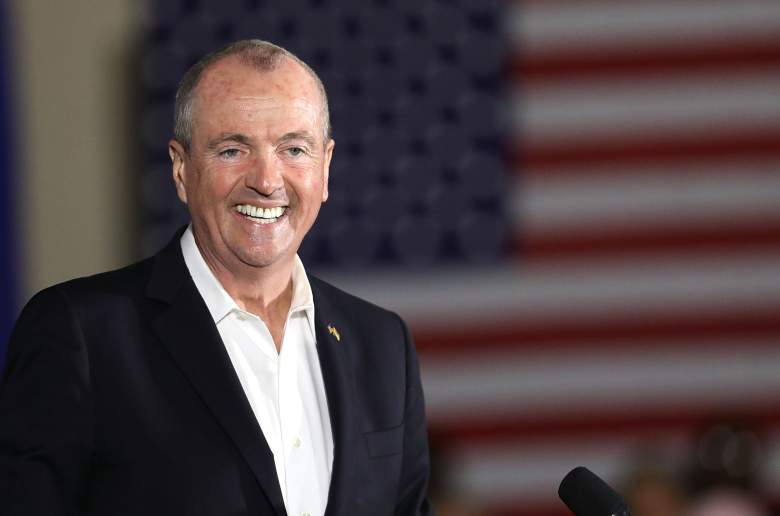
Throughout his campaign to become the governor of New Jersey, Phil Murphy had routinely embraced the idea of legalizing marijuana in the Garden State. Now, after having defeated his Republican challenger, Lt. Governor Kim Guadagno, the newly elected Democratic Governor is said to be moving swiftly to fulfill his campaign pledge to make marijuana legal for recreational use for people 21 and older.
In June, following his victory in the New Jersey primary, Murphy said that his intention was to sign a marijuana legalization bill within his first 100 days as governor.
“The criminalization of marijuana has only served to clog our courts and cloud people’s futures, so we will legalize marijuana,” he said during his primary night victory speech. “And while there are financial benefits, this is overwhelmingly about doing what is right and just.”
The financial benefits are certainly there according to Murphy and marijuana advocates. During the campaign, Murphy frequently said that legalization could bring in roughly $300 million in new tax revenue, which could certainly help provide some relief to the people of New Jersey, where taxes are some of the highest in the country. The money made from marijuana sales could fund “education programs and the public worker pensions,” according to Murphy.
Prior to Tuesday’s election, state Senator Nicholas Scutari, a Democrat, who has sponsored a bill aimed at legalization, said that if Murphy were to be elected, it’d be “full-steam ahead” towards making marijuana legal in New Jersey.
“The election of Phil Murphy gets us a giant step closer,” Scutari said. “Without him, I don’t know where we would be. He has a 100 percent commitment to it.”
According to polling conducted by PredictWise, 65% of New Jersey voters support the legalization of marijuana. New Jersey Senator Cory Booker (D) has also been a strong advocate of legalization, while the state’s Senate President Stephen Sweeney (D,) the person who controls what bills are voted on in the New Jersey senate, has said that he is on board with Murphy’s goal to have a bill passed within the new governor’s first 100 days.
This represents a fairly significant change in thinking in New Jersey, especially as it pertains to the governor’s stance on marijuana. The current governor, Chris Christie, has been a staunch opponent of any kind of legalization, saying supporters of the idea are “crazy liberals” looking to “poison our kids.” In a speech at a conference on substance abuse in May, Christie called Murphy out by name when attacking the then candidate’s plan to legalize marijuana.
“People like Nick Scutari and Steve Sweeney and Phil Murphy want to bring this poison, legalized, into this state under the premise that, well, it doesn’t matter because people can buy it illegally anyway,” Christie said. “Then why not legalize heroin? I mean, their argument fails just on that basis. Let’s legalize cocaine. Let’s legalize heroin. Let’s legalize angel dust. Let’s legalize all of it. What’s the difference? Let everybody choose.”
Christie called any money made from the sale of marijuana “blood money” and predicted that a Democratic administration, if they were elected, would make it one of the first priorities once he left office on January 16.
Medical marijuana was legalized in the state back in 2005 under the New Jersey Compassionate Use Medical Marijuana Act, yet Christie was reluctant to make implementation easy. The Governor enforced restrictions on the number of dispensaries that state could have. Of the six that were allowed, only three had opened by 2014.
Yet it’s not just financial benefits Murphy sees when it comes to legalization marijuana; he also sees an opportunity to do some minor criminal justice reform as taking marijuana off the table would eliminate “low-level drug offenses and reduce the number of people in prison.” While on the campaign trail this summer, Murphy said that the state’s current marijuana laws costs tax payers $143 million a year and that there is “a 3:1 racial disparity in arrests.” Under the current laws, getting caught with anything under 50 grams can lead to a sentence of six months in jail, as well as a $1,000 fine.
According to a study conducted by the ACLU, in 2013 New Jersey law enforcement officials made 24,067 arrests for marijuana possession. This represented a 26% increase from 2000, when that number was 19,607. Additionally, New Jersey law enforcement officials “make a marijuana possession arrest in New Jersey on average every 22 minutes.” The study goes on to backup Murphy’s claim regarding racial disparity, as well as the amount of money spent on enforcing the state’s marijuana laws.
The bill itself (S3195) continues to be tweaked by lawmakers, with provisions being added that would allow people to grow their own plants.